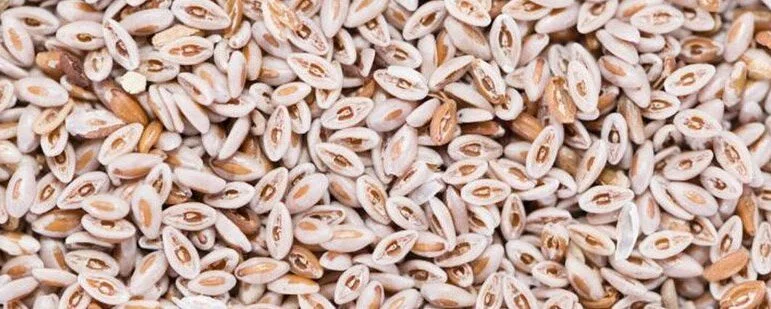Psyllium husk is a natural, plant-based fiber derived from the seeds of the Plantago ovata plant, which is commonly found in India. It is widely known for its health benefits, particularly for digestive health. Psyllium husk is often used as a dietary supplement to promote regular bowel movements and improve overall digestive function. It acts as a bulk-forming laxative by absorbing water in the intestines, helping to form soft, bulky stools, which can ease constipation.
Psyllium husk is a versatile fiber supplement used for various health purposes. Here are its main uses:
- Relieves constipation: Acts as a bulk-forming laxative by absorbing water and softening stools.
- Promotes digestive health: Supports regular bowel movements and overall gut function.
- Lowers cholesterol: Helps reduce LDL (bad) cholesterol, improving heart health.
- Regulates blood sugar: Aids in controlling blood sugar levels, beneficial for diabetes management.
- Supports weight loss: Increases the feeling of fullness, helping reduce appetite and calorie intake.
- Treats diarrhea: Absorbs excess water in the intestines, helping to solidify loose stools.
- Irritable bowel syndrome (IBS) management: Eases symptoms by regulating bowel movements.

What is the prescribed dosage of psyllium husk?
The prescribed dosage of the fiber supplement typically ranges from 5 to 10 grams per day, taken with meals, says Shah. A common starting point is 5 grams with a glass of water, three times daily. It is recommended to increase the dosage gradually, if well-tolerated, with a maximum of 20 to 25 grams daily for optimal benefits. It’s crucial to drink plenty of water to aid its effectiveness and prevent gastrointestinal discomfort.
What are the different ways you can consume psyllium husk?
The fiber supplement can be consumed in various forms:
• Powder: Mix 1-2 teaspoons with at least 1 glass of water or liquid. Stir well and drink immediately to prevent thickening.
• Capsules: Take 5-6 capsules with a full glass of water, typically 1-3 times daily.
• Wafers: Chew thoroughly before swallowing, following the recommended dosage on the packaging.
• Packets: Similar to powder, dissolve contents in water and consume promptly.
Always ensure adequate fluid intake to avoid choking and maximize effectiveness.

Who should not have psyllium husk?
Psyllium husk should be avoided by individuals with the following conditions:
• Those who have had an allergic reaction to psyllium should not use it.
• People who suffer from bowel obstructions or narrowing of the gastrointestinal tract are at risk for serious complications.
• People with swallowing difficulties should avoid psyllium, as it can cause choking.
• Faecal impaction is when a large mass of stool gets trapped in the rectum or the colon. Those experiencing faecal impaction should not take psyllium, as it may worsen the condition.
• If you experience symptoms like rectal bleeding or severe stomach pain, then discontinuation and urgent medical consultation is recommended.
• Caution is advised for people with kidney issues, as psyllium may affect fluid balance. Check out the signs and tests for kidney disease here.
What are the side effects of psyllium husk?
Psyllium husk can cause several side effects such as bloating, gas, abdominal pain, cramps, constipation, diarrhoea, and nausea. These symptoms may occur, especially when starting psyllium or if taken in excessive amounts. “Some individuals may experience severe allergic reactions, such as hives, difficulty breathing, and swelling of the face or throat. This requires immediate medical attention,” says Shah. Also, if not taken with adequate fluids, psyllium can lead to choking or gastrointestinal blockages.
Summary
Psyllium husk comes with a range of health benefits beyond treating constipation. It is good for digestion and also helps with symptoms of IBS. Besides this, it can help with regular sugar, cholesterol as well as blood pressure. However, one must consume the fibre supplement in moderation as there are some risks associated with it as well.
FAQs
How long does psyllium husk take to work?
It can take from 1 to 3 days to start showing results. However, one needs to be consistent while using it. It will help to take it at the same time each day. However, don’t take it for more than a week without consultation with your doctor.
What is the best time to take psyllium husk?
The best time to consume it would be early in the morning. However, start with a smaller dose, and gradually increase it.
Can you have psyllium husk every day?
Yes, it can be had every day, but after consultation with a doctor, especially if you have any underlying medical conditions.





